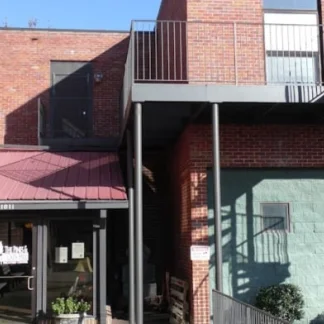Community Counseling Services - Adult PSR Program
Community Counseling Services – Adult PSR Program is a public rehab located in C...
The Pines and Cady Hill (PCH) is a dual diagnosis alcohol and drug treatment center set in the heart of historic downtown Columbus, Mississippi. Their treatment team is supportive of 12 step based recoveries and encourages their clients to connect with the local recovery community.
Pines and Cady Hill offers evidence based drug rehab programs and co-occurring treatment services tailored to address a variety of addiction and mental health challenges.
Pines and Cady Hill provides a 14+ day residential treatment program in a structured and supportive environment. With round the clock care, patients receive daily 90 minute group therapy, and counseling, while participating in activities that promote healing and recovery.
Recognizing the importance of a smooth transition from residential care to independent living, PCH offers transitional residential treatment. This program allows patients to gradually reintegrate into daily life while continuing to receive therapeutic support and guidance.
For those seeking flexibility while receiving treatment, Pines and Cady Hill offers outpatient programs which provide counseling, therapy, and support services to assist clients in their recovery journey while allowing them to continue with their daily commitments.
The intensive outpatient program (IOP) at PCH offers a higher level of care for those requiring structured support. With flexible scheduling options, clients attend therapy sessions, group counseling, and educational workshops while maintaining their daily routines.
Contact us for more information: (662) 327-7916

Connect with Pines and Cady Hills Treatment Center by calling their admissions team directly.
(662) 327-7916 Website Get DirectionsResearch clearly demonstrates that recovery is far more successful and sustainable when loved ones like family members participate in rehab and substance abuse treatment. Genetic factors may be at play when it comes to drug and alcohol addiction, as well as mental health issues. Family dynamics often play a critical role in addiction triggers, and if properly educated, family members can be a strong source of support when it comes to rehabilitation.
Trauma therapy addresses traumatic incidents from a client's past that are likely affecting their present-day experience. Trauma is often one of the primary triggers and potential causes of addiction, and can stem from child sexual abuse, domestic violence, having a parent with a mental illness, losing one or both parents at a young age, teenage or adult sexual assault, or any number of other factors. The purpose of trauma therapy is to allow a patient to process trauma and move through and past it, with the help of trained and compassionate mental health professionals.
Trauma therapy addresses traumatic incidents from a client's past that are likely affecting their present-day experience. Trauma is often one of the primary triggers and potential causes of addiction, and can stem from child sexual abuse, domestic violence, having a parent with a mental illness, losing one or both parents at a young age, teenage or adult sexual assault, or any number of other factors. The purpose of trauma therapy is to allow a patient to process trauma and move through and past it, with the help of trained and compassionate mental health professionals.
Community Counseling Services – Adult PSR Program is a public rehab located in C...
G.V. Sonny Montgomery VA Medical Center - Columbus Community Based Outpatient Cl...
Baptist Memorial Hospital Chemical Dependency Unit is a private rehab located in...
Baptist Behavioral Healthcare, in Columbus, Mississippi, is an integrative addic...